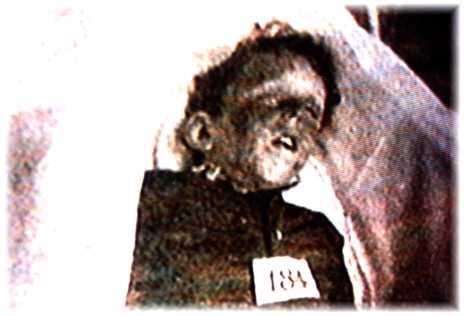If you love megaliths but live south of the equator, check out Stonehenge Aotearoa, located in New Zealand about an hour’s drive from Wellington.
It’s a replica of Stonehenge adapted for the Southern Hemisphere, with 24 pillars about 4 meters high.
If you love megaliths but live south of the equator, check out Stonehenge Aotearoa, located in New Zealand about an hour’s drive from Wellington.
It’s a replica of Stonehenge adapted for the Southern Hemisphere, with 24 pillars about 4 meters high.

An optical illusion. There is no triangle.
In the 1920s, the U.S. military devised a contingency plan for attacking Canada. After a first strike with poison gas, we’d occupy Halifax, invade Montreal and Quebec from New England, strike at the Great Lakes from Detroit and Buffalo, and impose a naval blockade on British Columbia.
At the same time, Canada’s Col. James Sutherland Brown developed a counter-invasion strategy where flying air columns would occupy Seattle, Portland, Oregon, Minneapolis, and St. Paul. Gen. George Pearkes called it a “fantastic desperate plan [that] just might have worked,” but it was withdrawn in 1931.
High school dropouts:

“When the lusty and fyne man should holde a young damosel, or a woman by the hand, and keeping his measures he shal remoue himselfe, whirle about, & shake his legges alofte (which the daunsers call crosse capring) for pleasure, doth not she in the meane while make a good threede, playing at the Moris on her behalfe: but I pray you: what can ther by there of God, of his worde, or of honestye in such folishnes: I holde my tounge, that is, I speake nothing of their wordes, amorous deuises, or deuises of loue, wanton communications or speeches or markes only knowen to the Ladye, or Gentlewoman. It is true, that a man will say to me, that he must reioyce and be mery, which thing also I graunt, but yet not with a worldly, dissolute, and leuse ioy.”
— A Treatise of Daunses, Wherin It Is Shewed, That They Are As It Were Accessories and Dependants (or Thynges Annexed) to Whoredome, 1581
In most lists of numbers, the leading digit 1 occurs about 30 percent of the time.
That’s Benford’s Law, named for the American physicist Frank Benford. It’s surprising, but it’s true, and it applies to most statistics relating to society and the natural world, from street addresses to the lengths of rivers.
It can even be used to detect fraud. When people make up lists of numbers, they tend to use too few leading 1s.
Writers who committed suicide:
“The real reason for not committing suicide,” wrote Hemingway, “is because you always know how swell life gets again after the hell is over.” He killed himself in 1961.

A young boy who drowned on the Titanic. Despite the frightful loss of life, the evacuating passengers generally behaved honorably — giving women first place in the lifeboats, for instance, regardless of their class. 55 percent of third-class women survived, compared to 33 percent of first-class men.
The only common English word that has five vowels in a row is queueing.
Famous bachelors: